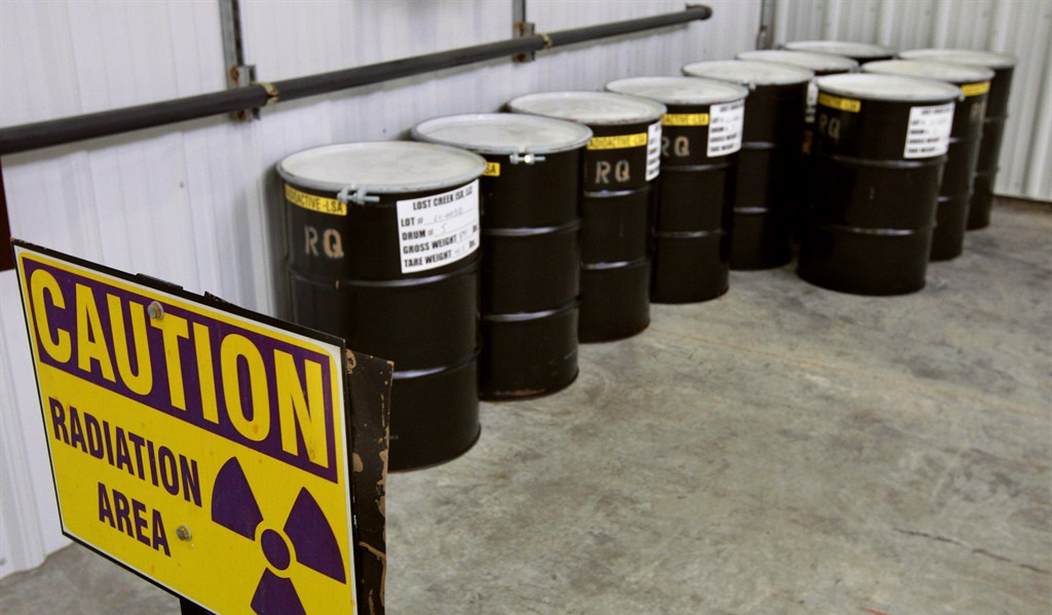Reuters was the first to report this as an exclusive a few hours ago. IAEA inspectors visited a site in Libya and found that 2.5 tons of “natural uranium” has gone missing.
The finding is the result of an inspection originally planned for last year that “had to be postponed because of the security situation in the region” and was finally carried out on Tuesday, according to the confidential statement by International Atomic Energy Agency chief Rafael Grossi.
IAEA inspectors “found that 10 drums containing approximately 2.5 tons of natural uranium in the form of UOC (uranium ore concentrate) previously declared by (Libya) … as being stored at that location were not present at the location,” the one-page statement said.
In a statement the IAEA said, “The loss of knowledge about the present location of nuclear material may present a radiological risk.” It is a risk but according to this factsheet, Uranium ore concentrate, also known as yellowcake, emits a fairly low level of radiation.
Radiation from uranium ore concentrate is quite low. Although uranium is a source of ionizing radiation – electricallycharged particles called ions that generate a lot of energy – the radiation risk associated with uranium concentrate is easily managed by simple steps such as limiting the time of direct exposure to the material. Workers who work with uranium concentrate typically use gloves and a respirator for protection.
So this is potentially dangerous if you don’t know what it is and don’t limit your exposure to it but it’s not suitable for use in a reactor or a bomb as is. Still, there are people out there (Iran and North Korea come to mind) who have the facilities to make this raw material more dangerous. And the fact that we don’t know where it went is obviously concerning.
Adding to the concern is the fact that Libya’s government remains a chaotic mess. There was supposed to be an election in December 2021 but it was postponed until 2022 for a number of reasons. This list of the candidates for office is interesting.
Some 98 candidates registered for the presidential race – including some who were seen as unacceptable by many in the country, including powerful armed factions.
Saif al-Islam Gaddafi, the son of former leader Muammar Gaddafi, registered despite a 2015 conviction in absentia by a court in the capital, Tripoli, of war crimes during the rebellion that overthrew his father 10 years ago.
Khalifa Haftar, a renegade military commander whose eastern-based forces waged a destructive 14-month offensive on Tripoli that ended last year, is rejected as a possible president by various armed factions and many people in western Libya.
Because the election couldn’t be worked out, the country’s Prime Minister refused to cede power:
The Prime Minister of Libya’s Government of National Unity (GNU), Abdul Hamid Dbeibeh, has again refused to hand over power until a new government has been put together after a General Election. The alternative government backed by the Tobruk-based Libyan House of Representatives is “born dead,” he insists.
Dbeibeh made his comments in a speech during the fifth regular meeting this year of the GNU’s Council of Ministers on Tuesday, which was broadcast on the government’s official Facebook page yesterday. “We affirm that the Libyan Government of National Unity continues to perform its duties normally until handing power to a legitimate, elected government,” he explained.
Libya’s political division has raised fears of a civil war following the inauguration of Fathi Bashagha as prime minister by the House of Representatives in Tobruk. Dbeibeh described Bashagha’s reported intention to enter Tripoli after crossing into Libya from Tunisia as an “illusory absurdity”.
And last July protesters stormed Parliament and set the building on fire.
Protesters have stormed Libya’s parliament in the eastern city of Tobruk and set fire to part of the building.
Images posted online showed thick columns of smoke as the demonstrators burned tyres outside.
There have been rallies in other Libyan cities against continuing power cuts, rising prices and political deadlock.
Needless to say this is not a stable situation and there are many players who might have taken the uranium, either to sell it or for some other reason. Hopefully, the IAEA will be able to track it down.








Join the conversation as a VIP Member